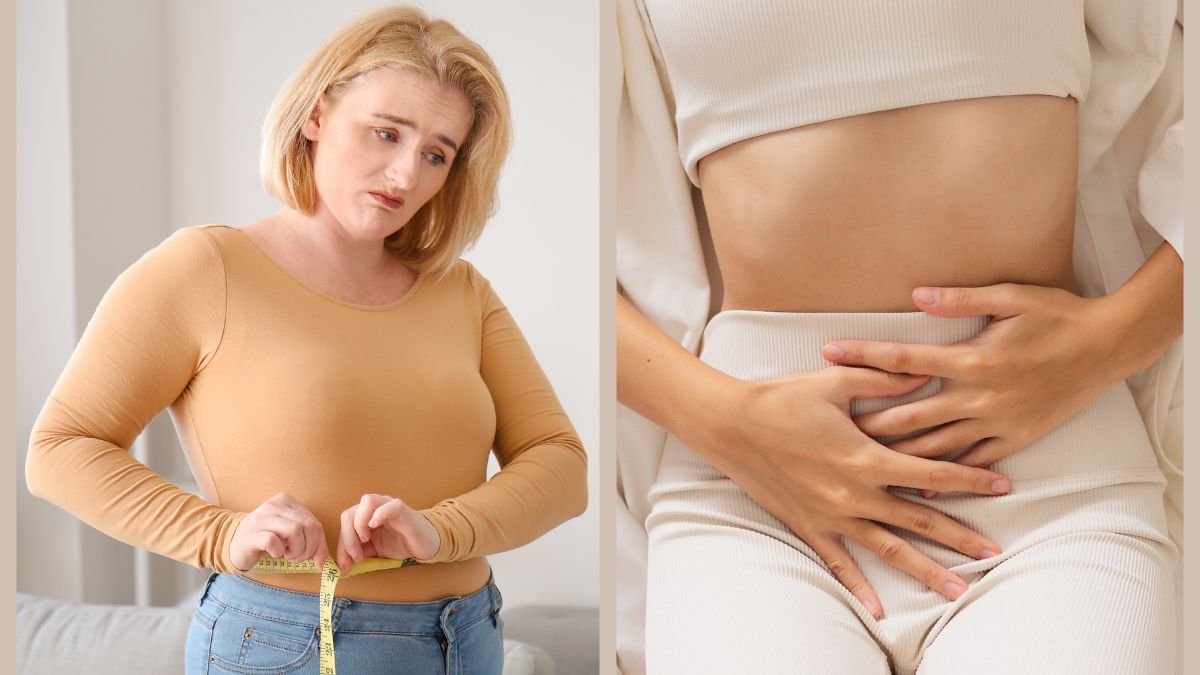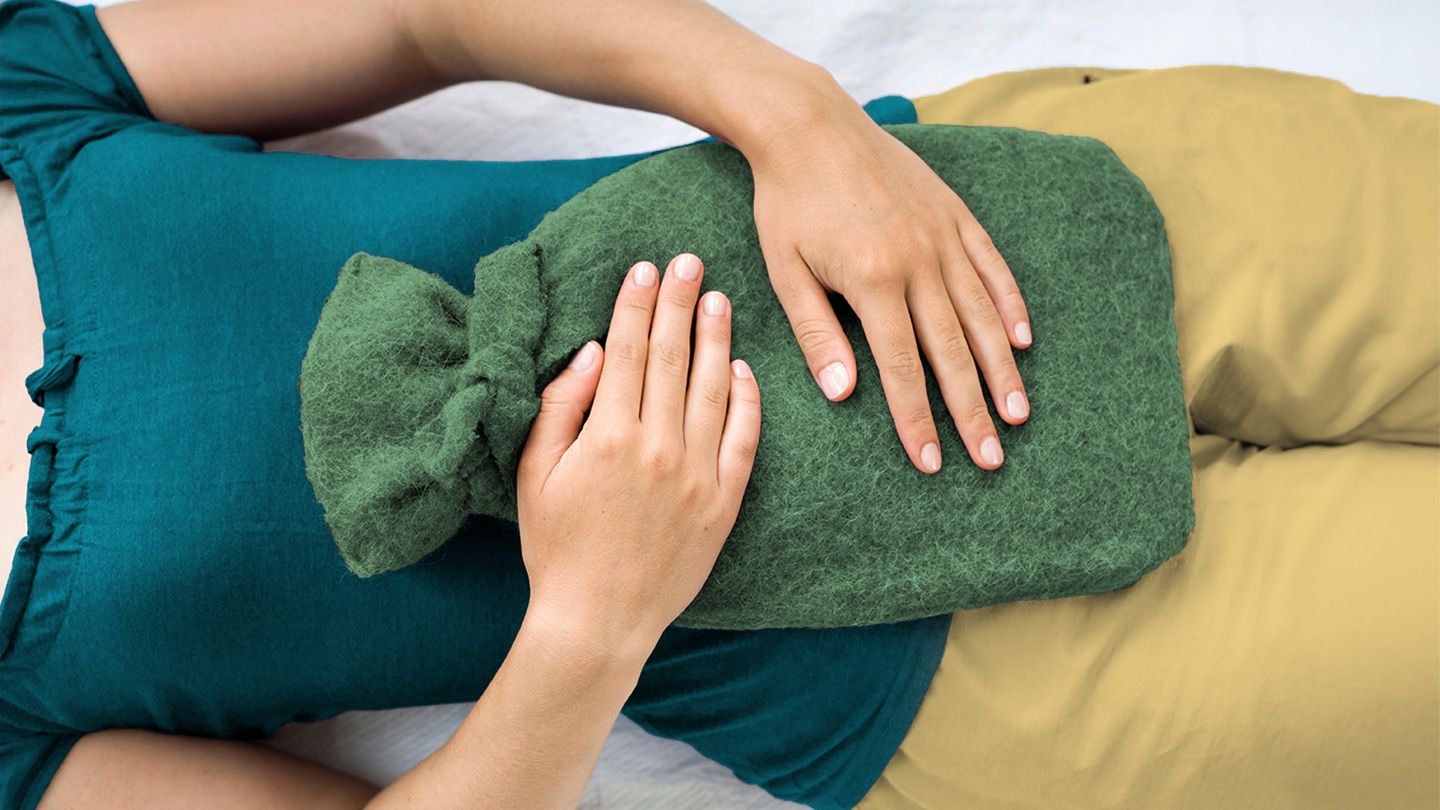Dealing with weight loss can be challenging, especially when you’re also navigating through your menstrual cycle. The hormonal changes and physical discomfort that come with your period can make you feel unmotivated to exercise. But here’s the good news – you can still lose those extra pounds without hitting the gym! Today, we’ll share effective strategies to help you lose weight during your periods without exercise.

Contents
Why Do You Gain Weight During Your Period?
During your menstrual cycle, it’s not uncommon to experience weight gain. This can be frustrating, especially if you’re trying to lose weight. But why does it happen?
1. Hormonal Changes:
One of the main culprits behind weight gain during your period is the fluctuation in hormones. The rise and fall of estrogen and progesterone levels can lead to water retention, causing you to feel bloated and notice an increase on the scale. This temporary weight gain is often referred to as “water weight” because it’s not actual body fat.
2. Increased Appetite and Food Cravings:
Another factor that contributes to weight gain during your period is an increase in appetite and food cravings. Many women experience a surge in hunger and cravings for high-calorie foods, particularly those high in sugar and carbohydrates. Giving in to these cravings can lead to consuming more calories than your body needs, resulting in weight gain.
3. Symptoms of PMS:
The physical and emotional symptoms of premenstrual syndrome (PMS) can also impact your weight during your period. Symptoms such as fatigue, mood swings, and irritability may affect your motivation to exercise or make healthy food choices. As a result, weight gain can occur.
4. It’s Temporary:
The good news is that the weight gain during your period is temporary. Once your period starts, your hormone levels begin to stabilize, and the water weight will naturally be eliminated from your body. On average, this process takes about three to five days.
How To Lose Weight During Periods Without Exercise?
If you’re looking for ways to lose weight during your period without exercise, there are a few strategies you can try.

- Focus on your diet: Nutrition plays a crucial role in weight loss, so it’s essential to pay attention to what you eat during your period. Aim to consume a balanced diet that includes plenty of fruits, vegetables, lean proteins, and whole grains. Avoid sugary and processed foods, as they can contribute to bloating and weight gain.
- Stay hydrated: Drinking enough water throughout the day can help flush out excess water weight and reduce bloating. Aim to drink at least 8-10 glasses of water per day. You can also incorporate herbal teas or infused water for added flavor and hydration.
- Manage your cravings: Hormonal changes during your period can sometimes lead to intense cravings for unhealthy foods. Instead of giving in to these cravings, try to satisfy them with healthier alternatives. For example, if you’re craving chocolate, opt for a small piece of dark chocolate instead of a sugary candy bar.
- Get plenty of rest: Adequate sleep is crucial for overall health and can also support weight loss. During your period, make sure to prioritize getting enough sleep each night. Lack of sleep can disrupt your hormones and increase cravings for unhealthy foods.
- Practice stress management: Stress can contribute to weight gain, so it’s important to find healthy ways to manage stress during your period. Consider activities like deep breathing exercises, meditation, or yoga to help you relax and reduce stress levels.
What To Avoid During Period To Stay Fit?
During your menstrual cycle, there are certain things you should avoid in order to maintain your fitness goals. Here are some important tips to keep in mind:
1. Junk Food and Sugary Treats
It’s important to resist the temptation of indulging in unhealthy snacks during your period. While cravings may be at their peak, opting for nutritious alternatives will be beneficial in the long run. Stay away from processed foods, sugary treats, and excessive salt intake. Instead, focus on consuming whole foods that are low in calories and high in nutrients.
2. Overeating and Emotional Eating
During your period, hormonal fluctuations can trigger emotional cravings and appetite changes. It’s essential to be mindful of your hunger cues and avoid overeating. Emotional eating can lead to consuming excess calories, hindering your weight loss efforts. Stay attuned to your hunger and fullness signals to prevent overindulging.
3. Dehydration
Dehydration can amplify symptoms like bloating and water retention during your menstrual cycle. Aim to drink plenty of water throughout the day to stay hydrated. Proper hydration can help regulate your body’s natural processes and support weight management.
4. Stress and Lack of Sleep
High stress levels and inadequate sleep can impact hormonal balance, metabolism, and ultimately hinder weight loss. It’s important to prioritize stress management techniques such as relaxation exercises, meditation, and sufficient sleep. These practices will contribute to improved overall well-being and aid in maintaining a healthy weight.
Frequently Asked Questions
Can you gain 10 lbs on your period?
Some women may experience weight gain during their period, with an average of 1 to 3 pounds. In rare cases, some women may gain up to 5 pounds. If you have concerns about excessive weight gain, it is recommended to consult with your doctor for further evaluation.
Can you eat more on your period without gaining weight?
Typically, the metabolic rate changes during your period are not significant enough to require additional calorie intake or affect weight gain. However, some individuals may experience increased cravings or hunger during this time, which may offset any minimal metabolic changes.
Why is it hard to lose weight on period?
The hormonal changes that occur during your period, particularly the increase in progesterone levels, can lead to water retention, breast tenderness, and temporary water weight gain. These factors can make it challenging to see immediate weight loss results.

Hello, I’m Ravindra. Over the years, I’ve immersed myself deeply into the world of fitness and health, transforming both my body and mind. Writing has allowed me to share my journey, insights, and expertise with those just starting out and seasoned fitness enthusiasts alike. Beyond just routines and diets, I believe in inspiring others to adopt a holistic approach to well-being.
